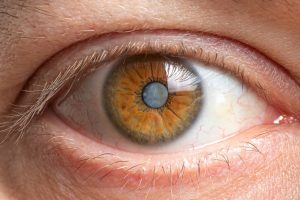 Photos of the retina may provide warning signs that a person is at an increased risk of stroke and dementia. This statement comes after preliminary research from the Mayo Clinic showed that people with damage to the retina are more likely to have signs of disease in the brain
Photos of the retina may provide warning signs that a person is at an increased risk of stroke and dementia. This statement comes after preliminary research from the Mayo Clinic showed that people with damage to the retina are more likely to have signs of disease in the brain
The study concluded that patients with severe retinopathy, which is damage to the light-sensing tissue at the back of the eye, are more likely to have a diseased-looking brain on magnetic resonance imaging (MRI). The lead author of the study, Michelle P. Lin, said: “The retina is a window to the brain. A retinal photo that shows a magnified look at the back of the eye, including the retina and optic nerve, is cheaper and faster to perform than an MRI, so we’re wondering if it might be a good screening tool to see who could benefit from a referral to a neurologist for a brain MRI.”
Advertisement
For the study, researchers analyzed data from 5,543 adults with an average age of 56 years who participated in the annual U.S. National Health and Nutrition Examination Surveys (NHANES) between 2005 and 2008. Participants were interviewed about many aspects of their medical history and health behaviors. They also received a retinal scan photo to look for any signs of retinopathy.
It was found that patients with retinopathy were more than twice as likely to have had a stroke than participants who did not have the eye disease. Almost 70% of these participants were also more likely to have dementia and die within the next ten years, with each increase in the severity of retinopathy associated with a higher risk of death.
These findings were calculated after adjusting for risk factors, including age, diabetes, high blood pressure, and smoking.
Photos Taken on a Smart Phone
The study also found that retinal photos don’t always need to be taken at the eye doctor’s office. Retinal photos can also be easily taken by a smartphone camera or via a smartphone adapter. This makes it very easy for people to take control of their health and be able to look for any signs of retinopathy.
Researchers from the study suggest patients with retinopathy work closely with their primary care doctors and ask to be screened for cognitive impairment. By getting in to see a neurologist and having a brain MRI, the risk of dementia can be reduced if caught early.
